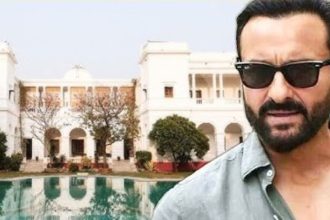Jammu India: Indian Prime Minister Narendra Modi’s Hindu nationalists are Sunday set to form a government in India’s only Muslim-majority state of Kashmir for the first time in a power-sharing deal with a regional rival.
Modi’s Bharatiya Janata Party (BJP) and the Peoples Democratic Party (PDP) are expected to be officially sworn into office in the restive region’s winter capital of Jammu in a tightly secured ceremony attended by the premier.
PDP leader Mufti Mohammad Sayeed will be chief minister of the region and head of its coalition government, following inconclusive elections held two months ago for the state assembly.
The December polls were marred by a number of deadly attacks in the Himalayan region, which is divided between India and Pakistan and claimed by both.
Security was tight around the University of Jammu, the venue where the cabinet will be inaugurated from 0530 GMT, with swarms of police patrolling the grounds.
“We have taken all necessary measures along the border (with Pakistan) and in the city to maintain law and order,” police inspector general for the Jammu region, Rajesh Kumar, told AFP.
Modi and Sayeed last week finally agreed on a common agenda to jointly rule the disputed state following weeks of negotiations, and details were expected to be unveiled on Sunday.
But the agenda is unlikely to include any reference to scrapping a constitutional provision which allows Kashmir to make its own laws, even though the BJP has long been committed to its abolition.
The BJP has also traditionally baulked at demands by the PDP to scrap a draconian law that gives Indian forces sweeping search and shoot-on-sight powers in Kashmir, which is seen by critics as a cover for rights abuses.
Analysts warned that the coming together of two ideologically different parties could fuel discontent in Jammu, the only mainly Hindu part of the state, and the Kashmir valley where Muslim separatist sentiment has traditionally been strongest.
“A big challenge will be to shore up credibility among voters in both regions of the state,” said Siddiq Wahid, a columnist and historian.
“What direction the discontent will take will depend on whether civil rights, like holding peaceful protest marches, will again be curbed.”
The PDP pledged during the election campaign to halt the BJP’s growing influence after Modi swept to power at general polls in May, only to join forces after results were released.
The BJP won 25 out of the 87 seats at the elections to Kashmir’s state assembly — a major increase on its previous showings — but it still came slightly behind the PDP on 28.
The new government also faces the tough challenge of rebuilding after floods in September destroyed $16 billion worth of property and infrastructure and left more than 200 people dead. (AFP)




